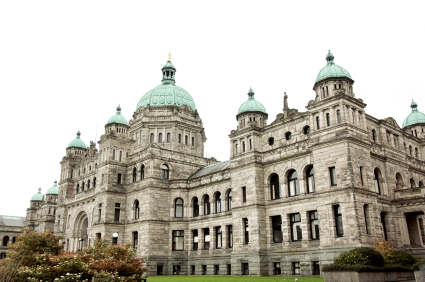The NDP Government delivered its seventh budget this week – the first for new Premier David Eby – and it did little to indicate they understand how to tackle the supply chain, infrastructure, workforce development, and the affordability problems that so many ICBA members are grappling with.
ICBA’s Jordan Bateman was in the B.C. Budget Lockup in Victoria Tuesday and noted that employer association representatives were dismayed by Finance Minister Katrine Conroy’s lack of discussion and action on these issues.
While government spending reached an all-time high, the provincial debt jumped to more than $100 billion for the first time in B.C. history, and $11 billion in deficits are expected over the next three years.
Buried in the Budget document was news that corporate income taxes, due to the federal government recalculating how it had collected and paid it out to provinces, had come in more than double the $5 billion the government had expected. This formed a major chunk of the surplus Premier Eby is trying to spend before year-end, March 31.
Yet the budget did not offer a single tax cut for entrepreneurs, employers and job creators dealing with escalating financial pressures. In fact, the carbon tax was increased by $15/tonne, which will add more fuel costs for businesses and families already struggling under the strain of B.C.’s high energy costs. Very large emitters will get a tax break through a new system being set up by the government, and low-income families will get a credit. But construction contractors, other employers, and middle-class workers will simply have to absorb the tax hike.
On the infrastructure side, the NDP touted record levels of capital spending. Unfortunately, that is in part due to the monopoly they have given their building trades union allies on several high-profile projects, which have inflated construction costs and frozen out of these projects 85% of construction workers in BC.
The 65-year-old Taylor Bridge over Peace River was again left out of the budget, the Massey Tunnel replacement was scheduled for 2030, and there were no dollars targeted toward improving operations or infrastructure serving B.C. ports, a key supply chain chokepoint and as we experienced following the record floods in the fall of 2021, a major risk to our ability to trade goods.
Another $1.7 billion was committed to building government-owned housing, but despite that plan, B.C. housing starts are expected to drop 16.5% in 2023, and another 5.1% in 2024. Even with infusion of government cash, housing supply is not keeping up. A pilot project promising $91M over 3 years to provide homeowners with “financing incentives” to add secondary suites, was included. Details were promised for later this spring.
With natural resource revenue dropping by 33% over two years, government announced it would hire 160 new staff to reduce natural resources permit backlogs and “unlock economic potential.” We hope this helps, but we’d prefer they cut red tape rather than hire more bureaucrats. Similarly, the Ministry of Labour will see their budget grow by nearly 25%, with spending focused on more inspectors to investigate worker complaints under the Employment Standards Act.
It should be noted the B.C. NDP have added more than 9,000 new government staff in the past six years already, growing the bureaucracy by more than a third, and nothing seems to be processed any faster. Both the Business Council and the Fraser Institute have remarked that BC finds itself in a place where government has created the most new jobs in the two years from mid-2020, and not the private sector.
On the worker shortage side, some small-scale training programs are funded, but no details were announced.
Canada generally, and B.C., has lost ground when it comes to attracting investment into our economy, which is no small reason why the national economy, according to the OECD, is expected to be the worst performer among the 38 most advanced economies over the next decade. This budget does nothing to change that, and in fact ignores the issue all together.

